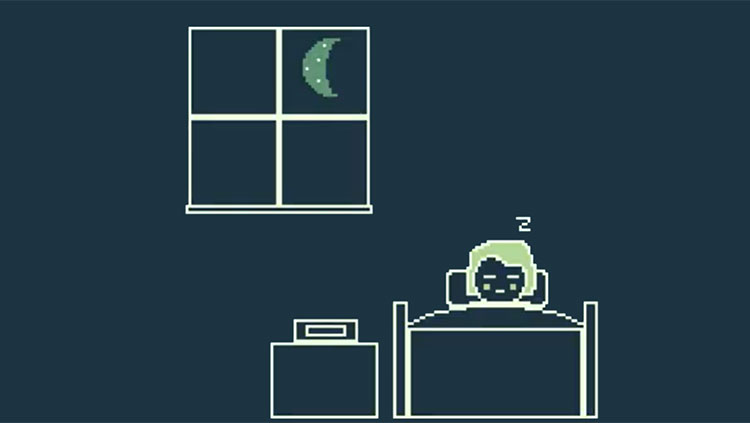Circadian Rhythm: The Clock that Keeps on Ticking
- Published1 Sep 2022
- Source BrainFacts/SfN
Most of us keep a pretty steady schedule of when we wake up and when we go to sleep. It’s not just the sun and the clock that sets that routine. Biological processes called circadian rhythms dictate our 24-hour schedule. Controlled by biological clocks in our cells and influenced by the world around us, circadian rhythms affect our mood, energy level, appetite — and when we sleep and wake.
This is a video from the 2022 Brain Awareness Video Contest.
Created by Elissavet Chartapila and Sean Gay.
CONTENT PROVIDED BY
BrainFacts/SfN
Transcript
Circadian Rhythm: The Clock that Keeps on Ticking. A video by Elissavet Chartapila and Sean Gay.
Sleep is a highly conserved behavior across the entire animal kingdom, from mammals, birds, and insects, to fish. In humans, it affects our mood, appetite, digestion, memory, and many more physiological processes.
In order to maintain proper sleep, our bodies have a natural sleep-wake rhythm which is essential for maintaining health. This is called a circadian rhythm. But what is a circadian rhythm?
Circadian rhythms are biological processes that follow a 24-hour cycle. These rhythms affect our physiology, metabolism, and even mood. For example, telling our bodies when to fall asleep and when to wake up. But how does the body maintain this circadian rhythm?
Well, every cell in our body has a biological clock. But the suprachiasmatic nucleus, SCN for short, is the brain region that is our body’s master clock. What it does is it optimizes our bodily processes in order to maintain a properly functioning circadian rhythm. To do that, it receives input from the environment and our biological clocks.
Biological clocks are our bodies’ internal timing devices. In humans, the three most important biological clocks are the genes CLOCK, PER, and CRY. In the morning, CLOCK, PER, and CRY levels are low. During the day CLOCK levels increase, activating the expression of many genes important for circadian rhythm, including PER and CRY.
As PER and CRY accumulate throughout the day, and into the night, they gradually deactivate CLOCK. This in turn decreases the levels of PER and CRY, allowing the cycle to start again. Our biological clock functions even in the absence of environmental cues.
However, environmental cues, such as meal times, exercise, and social interactions can help fine-tune this clock and align it to the correct time of the day. These environmental cues are called Zeitgebers. The most important Zeitgeber is light exposure. As light hits your retina in the morning, a signal travels down your optic nerve to the SCN, transmitting information about the time of day. This causes several changes in the body, including decreasing the levels of melatonin, the hormone that makes us sleepy.
At night, in the absence of light, melatonin levels increase, preparing us for a long night of restful, dreamful, beautiful sleep. A regular circadian rhythm is important for maintaining many aspects of good health. Disruptions to our normal circadian rhythm can interfere with our mood, energy, and appetite. A real-world example of such a disruption is jet lag.
As we travel across the world and the seven seas, we must adapt to the new sunrise and sunset. While our bodies realign our biological clock to this new environment, we can experience fatigue, grogginess, and changes in appetite. Chronic disruption of our circadian rhythm, due to genetic or environmental factors, is associated with an increased risk drug abuse, fatigue, obesity, mood disorders, and even insomnia.
But don’t worry. There are several ways to correct and maintain our circadian rhythms, including going to bed and waking up at the same time every day, reducing blue light exposure before bedtime, and getting daily exercise.
So, whether you're an exhausted elephant, tired tiger, or simply a drowsy human. Have a goodnight, and don’t let the bedbugs bite. Thanks for watching!
Also In Sleep
Trending
Popular articles on BrainFacts.org
















